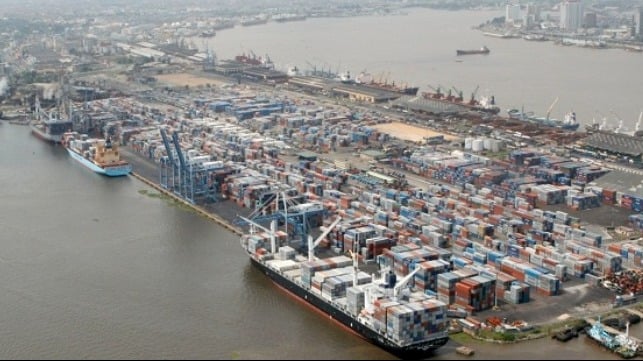Slow Cargo Clearance at Nigerian Ports from Custom’s IT Failure

A recurring server failure at Nigeria’s major ports has become costly for the port operators. It is estimated that importers and freight forwarders have paid over $485 million in the past two weeks, as demurrage charges to terminal operators and shipping lines.
In an interview with The Guardian, the National President of Africa Association of Professional Freight Forwarders and Logistics Nigeria, Otumba Frank Ogunojemite, complained that the Nigeria Customs Service (NCS) servers have been experiencing downtime for the last two weeks. As a result, slow customs operations are inconveniencing cargo clearance at the ports terminals. “Looking at the number of vessels that arrive and multiplying it by the number of containers in the vessels, which is about 2,000, you discover we have paid over N200billion ($485million) in just two weeks of the server malfunction,” said Ogunojemite.
Dr. Bolaji Akinola, the spokesperson of Seaport Terminal Operators Association of Nigeria (STOAN), said that lack of scanners and overly manual processes makes the NCS the greatest obstacle to trade facilitation in the country and a barrier to the ease of doing business at the ports. Akinola suggested it is the time for NCS to upgrade servers and other digital platforms, as failure to invest in modern information technology affected ports operations. It also hinders customs tax collection, constituting capital flight for the country.

that matters most
Get the latest maritime news delivered to your inbox daily.
“We have not been able to ascertain the cause of the disruptions in our servers,” said the Deputy National Public Relations Officer for NCS, while confirming the incident. “As you know the IT architecture, which drives Customs operations is managed by Webb Fontaine. As we speak, they have not issued any statement to address this issue. However, over the weekend, all hands were on the deck to ensure normalcy was restored to the system.”
Nigeria is mainly served by the Apapa and Tin Can Islands terminals located in Logos, which due to insufficient automation and meager rail transport, experience high congestion. Seaport Terminal Operators Association estimates that this congestion costs the country $55 million a day in terms of lost economic activity. They also said that this is part of the reason other smaller West African countries such as Togo are dominating in maritime transport. Presently, some cargo destined for Nigeria is being transshipped from Ghana, Cameroon and Ivory Coast.
